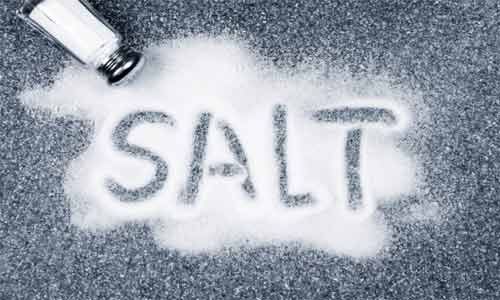- Home
- Medical news & Guidelines
- Anesthesiology
- Cardiology and CTVS
- Critical Care
- Dentistry
- Dermatology
- Diabetes and Endocrinology
- ENT
- Gastroenterology
- Medicine
- Nephrology
- Neurology
- Obstretics-Gynaecology
- Oncology
- Ophthalmology
- Orthopaedics
- Pediatrics-Neonatology
- Psychiatry
- Pulmonology
- Radiology
- Surgery
- Urology
- Laboratory Medicine
- Diet
- Nursing
- Paramedical
- Physiotherapy
- Health news
- Fact Check
- Bone Health Fact Check
- Brain Health Fact Check
- Cancer Related Fact Check
- Child Care Fact Check
- Dental and oral health fact check
- Diabetes and metabolic health fact check
- Diet and Nutrition Fact Check
- Eye and ENT Care Fact Check
- Fitness fact check
- Gut health fact check
- Heart health fact check
- Kidney health fact check
- Medical education fact check
- Men's health fact check
- Respiratory fact check
- Skin and hair care fact check
- Vaccine and Immunization fact check
- Women's health fact check
- AYUSH
- State News
- Andaman and Nicobar Islands
- Andhra Pradesh
- Arunachal Pradesh
- Assam
- Bihar
- Chandigarh
- Chattisgarh
- Dadra and Nagar Haveli
- Daman and Diu
- Delhi
- Goa
- Gujarat
- Haryana
- Himachal Pradesh
- Jammu & Kashmir
- Jharkhand
- Karnataka
- Kerala
- Ladakh
- Lakshadweep
- Madhya Pradesh
- Maharashtra
- Manipur
- Meghalaya
- Mizoram
- Nagaland
- Odisha
- Puducherry
- Punjab
- Rajasthan
- Sikkim
- Tamil Nadu
- Telangana
- Tripura
- Uttar Pradesh
- Uttrakhand
- West Bengal
- Medical Education
- Industry
Reducing Salt Consumption helps control BP without adding to weight gain, finds Hypertension Study

Boston – Reducing sodium intake in adults with elevated blood pressure or hypertension decreases thirst, urine volume (a marker of fluid intake), and blood pressure, but does not affect metabolic energy needs, a new study has revealed. These results, published in the journal Hypertension, support the traditional notion that decreasing sodium intake is critical to managing hypertension – disputing recent studies.
High blood pressure (BP) affects more than 150 million adults in the United States, putting them at increased risk for a range of health problems, including heart attack and stroke. Because salt consumption is thought to contribute to high blood pressure by stimulating thirst and leading to greater fluid intake, cutting salt intake is widely considered to be an important strategy for lowering blood pressure. Separately, recent studies have suggested that higher sodium intake does not in fact stimulate thirst and fluid intake but promotes weight loss by changing the body's total energy needs.
A new study led by Stephen Juraschek, MD, PhD, Assistant Professor of Medicine at Beth Israel Deaconess Medical Center (BIDMC), sheds new light on these conflicting findings. The researchers found that reducing sodium intake in adults with elevated blood pressure or hypertension decreased thirst, urine volume (a marker of fluid intake), and blood pressure, but did not affect metabolic energy needs.
Using data from the completed Dietary Approaches to Stop Hypertension (DASH)-Sodium trial, a randomized controlled-feeding study, published in 2001, the researchers examined the effects of three different levels of sodium intake (low, medium, and high) on blood pressure in participants following two distinct diets – a typical American diet (control diet) or a healthy diet (the DASH Diet). In this secondary analysis of the DASH-Sodium trial, the researchers measured the impact of sodium intake on participants' energy intake, weight, self-reported thirst, and 24-hour urine volume.
The researchers found that, while reduced sodium intake did not affect the amount of energy required to maintain a stable weight, it did decrease participants' thirst. Furthermore, urine volume was either unchanged or lower with reduced sodium intake. Together these results suggest that in adults with elevated blood pressure or hypertension, a lower sodium intake decreases thirst, urine volume (and likely fluid intake) and blood pressure. These changes occurred without altering the amount of energy required to keep body weight constant.
"Our study contributes meaningfully to this scientific debate and underscores the importance of sodium reduction as a means to lower blood pressure," said Juraschek. "Public health recommendations aimed at lowering population-wide sodium intake for blood pressure should continue without fear of contributing to weight gain."
As a next step, Juraschek and his colleagues plan to continue to study the effects of sodium over a longer duration in adults with diabetes, as well as look at the effects of fluid intake on clinical outcomes through clinical trials as well as in large national datasets such as the National Health and Nutrition Examination Survey (NHANES).
To read the full study click on the following link
https://www.ahajournals.org/doi/10.1161/HYPERTENSIONAHA.119.13932
Dr Kamal Kant Kohli-MBBS, DTCD- a chest specialist with more than 30 years of practice and a flair for writing clinical articles, Dr Kamal Kant Kohli joined Medical Dialogues as a Chief Editor of Medical News. Besides writing articles, as an editor, he proofreads and verifies all the medical content published on Medical Dialogues including those coming from journals, studies,medical conferences,guidelines etc. Email: drkohli@medicaldialogues.in. Contact no. 011-43720751


